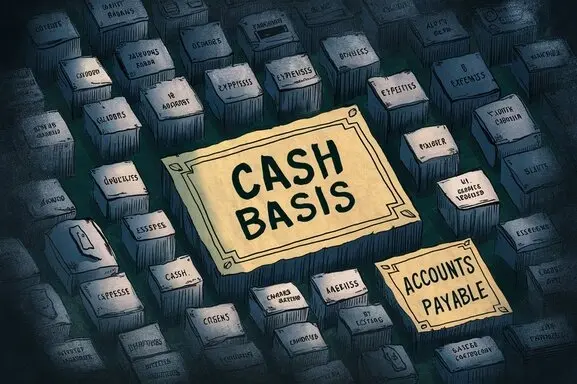Does Cash Basis Have Accounts Payable?

The cash basis of accounting is a method where revenues and expenses are recognized only when cash is received or paid. A common question is whether accounts payable exist under the cash basis method.
Understanding Cash Basis Accounting
In cash-based accounting, transactions are recorded when cash changes hands. This means that income is recognized when received, and expenses are recognized when paid. This method is often more straightforward than accrual accounting.
Accounts Payable in Cash Basis Accounting
Under cash-based accounting, accounts payable do not exist in the same way it does in accrual accounting. Since expenses are only recorded when cash is paid, there is no need to track amounts owed to suppliers. Therefore, accounts payable as a liability account is not applicable in cash-based accounting.
Implications for Businesses
1. Simplicity: The absence of accounts payable under cash-based accounting simplifies financial management. Businesses do not need to track outstanding invoices or manage liabilities.
2. Cash Flow Focus: Cash-based accounting emphasizes cash flow management, making it easier for businesses to understand their cash position at any given time.
3. Limitations: However, the cash basis method may not provide a complete picture of a company's financial health, as it does not account for obligations that have been incurred but not yet paid.
Conclusion
In summary, accounts payable do not exist under cash-based accounting. This method focuses solely on cash transactions, meaning that expenses are only recorded when cash is paid. Understanding this distinction is essential for businesses choosing between cash basis and accrual accounting.
Contact Us Today for Tailored Accounts Payable Solutions.

